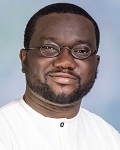2021
Abdulbasit Kassim
- Doctoral Candidate
- Rice University

Abstract
The region of Hausaland and Borno (commonly referred to as Northern Nigeria and Central Sudanic Africa) have experienced successive waves of Islamic reform, counter-reform, and jihad. Is there a linear development and continuity of ideas from the eighteenth-century Islamic movements led by Jibrīl b. ʿUmar (d. 1784) and ʿUthmān b. Fūdī (d. 1817) to the contemporary Islamic movements led by Jamāʿat Ahl al-Sunna li-Daʿwa wa-l-Jihād (Boko Haram), Jamāʾat Anṣār al-Muslimīn fi Bilād al-Sūdān (Ansaru) and Wilāyat Gharb Ifrīqīyā? What changed, and what endured in the Longue durée of Islamic reform? Drawing on eighteen months of research in manuscript repositories and ethnographic fieldwork, this project examines the continuities and changes in the intellectual history of Islamic thought, reform, and jihad. It provides a window onto the common and divergent methodologies of wide-ranging groups of reformers claiming the mantle of reform and jihad, but it does so by rejecting the historiographical binary of a reformist past either disentangled from the present or tethered teleologically to it. Unlike previous studies that focused on specific historical periods or religious movements, this project illuminates the core doctrinal ideas that Islamic reformers and dissidents in Hausaland and Borno have contested and appropriated to legitimize their projects of reform from the eighteenth to the twenty-first centuries.

